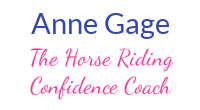Did you know that you and your horse learn the same way? That’s right! Those unwanted behaviours he has and the unwanted emotions you feel can both be learned in the same way.
You're both "conditioned response" animals.
What Is A Conditioned Response?
Every time you see a red light when you're driving, your foot moves to the brake (at least, I hope it does!) This is a conditioned response.
And when your horse sees a feed bucket, he may nicker or paw or come to the gate. That's a conditioned response, too.
So, what is a conditioned response? It's simply a behaviour that through training becomes an automatic response to an ordinarily neutral stimulus.
That red light only takes on meaning when you’re learning to drive a car.
That bucket only takes on meaning when your horse sees it at every meal time.
The most well-known example of a conditioned response is Pavlov’s dog experiment. You know, the one where he rang a bell before the dogs were fed. The dogs salivated when the food came. But, eventually, they salivated when the bell rang – even without the food being present.
Conditioned Responses Can Lead To Unwanted Behaviour
Both you and your horse can develop conditioned responses to certain situations or stimuli that are not helpful behaviours. In plain language – you get triggered to do something or feel a certain way. (To see it in action, watch this video clip of a barrel horse doing the pattern without a rider. That’s a conditioned response.)
And you and your horse can get into a cycle of triggering each other to feel anxious.
For example, let's say that your horse has experienced pain from an ill-fitting saddle at some point in his life. Now, you’ve made sure that his saddle fits him properly. But, he continues to be “grumpy” when being saddled.
He pins his ears, moves away from the saddle and maybe even threatens to kick.
All those unwanted behaviours are conditioned responses to the saddle.
So, you may react to your horse’s threatening behaviour by becoming either annoyed or anxious about saddling him. You automatically feel that way every time you saddle him.
That annoyance or anxiety is also a conditioned response to the saddle.
You or your horse can have conditioned responses to all sorts of stimuli – even from events that happened years before. Like experiencing riding a bolting horse as a child and, years later, still being terrified to canter or ride on trails.
Learned Unwanted Behaviours Can Be Unlearned
The good news is that these conditioned responses have all been learned ... so that means that they can be unlearned.
For your horse, the same behavioural learning processes that led to the formation of a conditioned response can also be used to teach new behaviours or change old ones. With the use of positive reinforcement (and as long as pain has been removed), your horse can look forward to being saddled.
For you, changes can be made quickly by learning mindset techniques that release the emotions connected to past memories.
In the next blog post, I’ll share how to change your negative thinking pattern so you’ll build your confidence and get better results when horse riding.
If you're struggling with fear or anxiety in any area of riding or handling your horse, here are 3 ways I can help you improve your confidence:
1. Sign up for my newsletter and get my awesome FREE cheat sheet "5 Tips To Feel Calmer Quickly When Horse Riding" https://confidenthorsemanship.com/quick-confidence-tips/
2. Join my FREE Confident Horsemanship Community group on Facebook here: https://www.facebook.com/groups/ConfidentHorsmanshipCommunity/
3. Book an assessment call for $10 - https://bookme.name/AnneGage/lite/assessment-call
I'm looking forward to helping you ❤️

